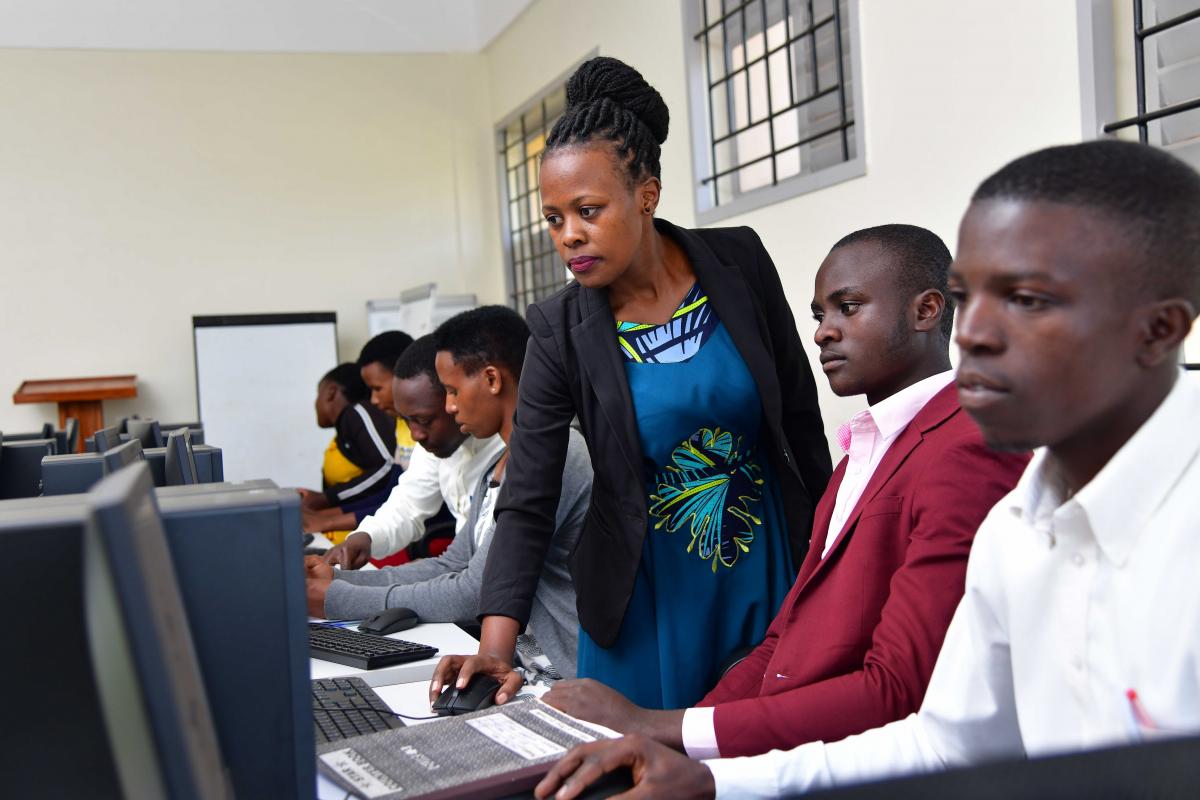Elevating Gender and ICT in Teaching and Learning in Uganda
The 2019 National Teachers’ Policy (NTP) emphasises the
government’s position on ensuring gender equality within schools and the
incorporation of ICT in teaching and learning since the reform of the lower
secondary school curriculum. This is in line with the government white paper
1992, which recognises the importance attached to the quality of teachers and
notes the key leadership roles and services which teachers play in implementing
education policies and programs. Some of these include skillfully imparting
knowledge to learners to help them develop both the ability and desire to learn
and encourage the development of their personality by guiding them to form
positive and acceptable social values.
At Enabel, our initiatives under the Teacher Training Education
Project are strongly aligned with Uganda’s Strategic Framework for Education.
We focus on gender and digitalisation as some of the critical contributors to
creating a conducive and sustainable teaching and learning environment to
achieve Uganda’s international commitments embodied in the UN-SDGs,
specifically, SDG4.
In June 2022, we supported the Ministry of Education and Sports
to monitor and assess teacher performance in the five National Teacher’s
Colleges (NTCs), focusing on the application of learner-centred teaching
methods. The activity was done to evaluate the practices of lesson delivery in
the NTCs and map out the gaps and key areas that require attention and support.
The monitoring activity was equally aimed at ensuring that the teacher training
institutions promote a gender-responsive and friendly learning environment for
their students at the colleges.
Kaitasi Salome, a National Education Expert from Kyambogo
University who participated in the monitoring exercise at NTC Mubende and
Kaliro, stated that one of the prerequisites for achieving quality education as
a tool for human capital development is the availability of competent and
effective 21st-century teachers. “We are here to observe how the teacher
trainers are sustaining Active Teaching and Learning, the incorporation of
Gender Responsive Pedagogy (GRP) and the use of ICT in the classroom,” she
said. She added that in the past, Gender Responsive Pedagogy was not taken
seriously but was pleased to find that most of the lessons she observed were
engaging and non-biased. “We have made considerable progress on how we teach at
the colleges. In almost all the lessons I monitored, lecturers are well versed
with using ICT to teach and provide equal opportunities to male and female
students to participate in the classroom”.
Max Okiror, the Assistant Commissioner, TETD department of the
Education Ministry, said that teacher education is undergoing a reform to
ensure that the teachers produced from the NTCs are competent. He added that
investing in teachers will ensure that learners acquire the needed skills,
knowledge and values that contribute to national development. “Evidence from
the best education systems around the world reveals that the quality of
teachers is the most important factor in determining how well students learn.
We thank Enabel for supporting the department in carrying out this exercise. It
will enable the Ministry to support the teacher trainers in the areas they are
lacking and help us achieve quality teacher education”, he added.
Considering the new context, Enabel supports the Ministry of
Education in improving the teacher training institutions’ digital readiness for
a hybrid education system while ensuring a gender-responsive and friendly
teaching and learning environment.
Laatste nieuws van dit project
Geen nieuws

